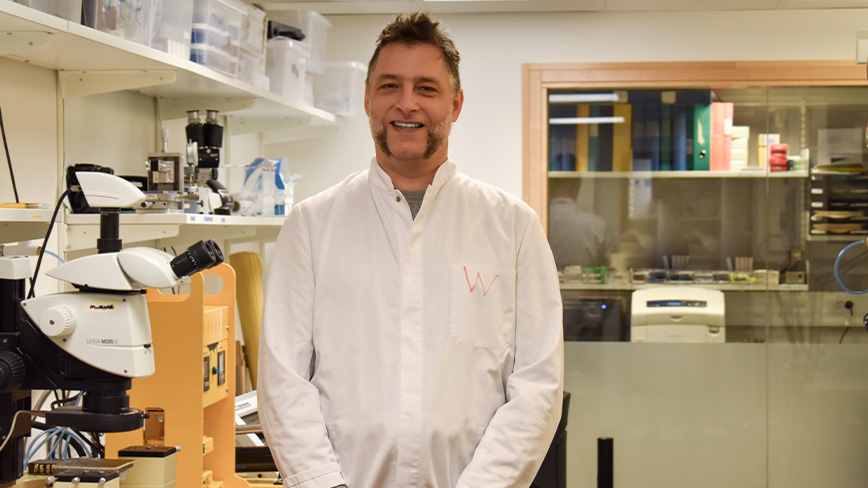The MST spin-off machine

Since the start of KTH Innovation in 2007, researchers, students and employees have founded 250 companies that are still active. Out of those, 11 are spin-offs from the division of Micro and Nanosystems. What is the secret behind this spin-off success?
In the last 18 months, the division of Micro and Nanosystems has originated four new start-ups. To learn more, I talked to the Deputy Head of the division, Wouter Metsola van der Wijngaart.
“We try to implement the KTH Innovation readiness level, with a focus on the technological level, early in our research”, he says.
The concept of success
Impact means value created for stakeholders. By contacting stakeholders, you will know whether your idea or theory is worth pursuing because the goal of all the research is, in the end, to make an impact – actually to do something.
“We talk to the stakeholders early to find out who they are, what problems they have and what a solution might look like”.
What is needed to translate research to impact depends on the project and its stakeholders. Sometimes, a spinoff company is a preferred strategy. Wouter stresses that he’s not an entrepreneur. He wants to do research and supervise projects driven by doctoral students.
“When a student has worked developing something for five years, it’s thrilling to have the possibility to see their technology being brought to reality”.
When starting a company, they work closely with KTH innovation, which can help recruit team members such as external CEOs, administration, patents and networks, which is crucial for a start-up.
When most companies fail
Nike said it best; just do it. That’s a fact. Everything that you do not start is going to fail. 100% of the companies that do not make it past the idea stage – fail.
“The biggest challenge is to start. I have co-created six companies. Only one failed because we did not really get started”.
Doing something alone is lonely; you need to figure out where to go, what to do, and what competencies to improve.
“Having a good team around you is very important. Bring two or three people together that you trust and that bring the key competencies needed. Of course, earlier experience is an advantage. But everyone is a beginner at some point. Then you must also make sure you have an excellent advisory board”.
Speaking of experience, Wouter started his first start-up project in 1999, and since then, he has laid the foundation for many companies.
“I learned much more in one year with my first start-up than many years before. So, starting a company is a fantastic journey for students” Wouter finishes.
Text: Charlotta Alnersson
